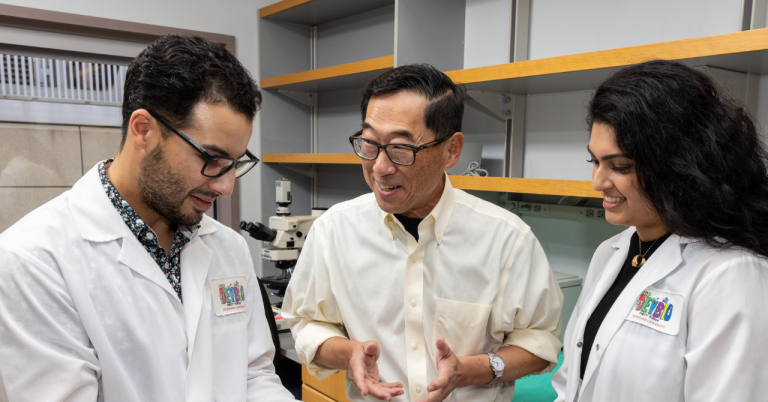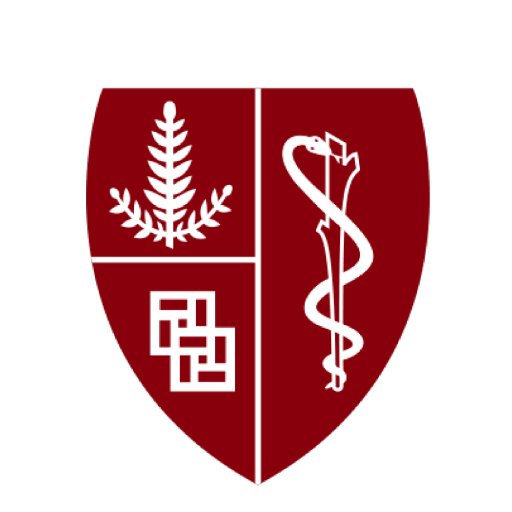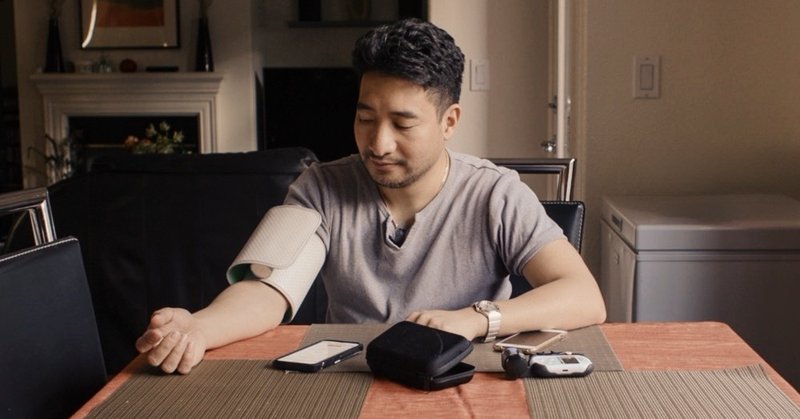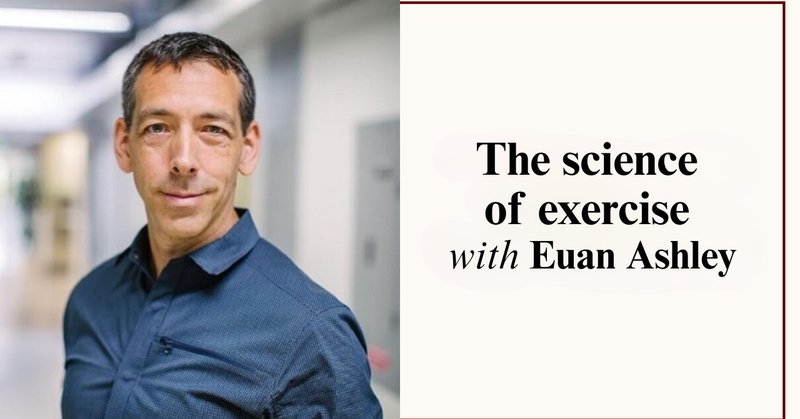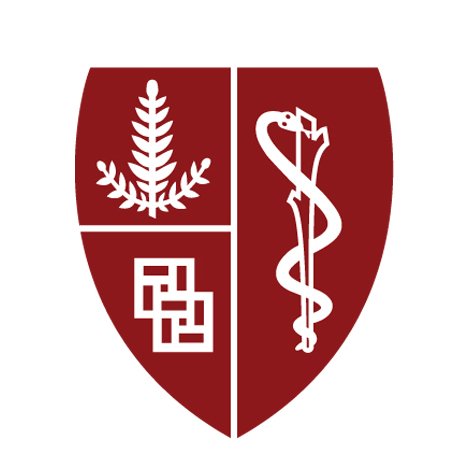
Stanford Health Care
@StanfordHealth
Followers
40K
Following
1K
Media
1K
Statuses
10K
The official account of Stanford Health Care Advancing knowledge, improving lives
Stanford, CA
Joined February 2009
A Stanford Medicine-led trial found that a few weeks of personalized prehab -- a program focused on nutrition, physical activity, cognitive training and mindfulness -- improved patients’ physical and cognitive resilience before surgery.
med.stanford.edu
A Stanford Medicine-led trial found that a few weeks of personalized prehab improved patients’ physical and cognitive resilience before surgery, with noticeable changes in their immune system.
0
3
2
A Stanford Medicine study reveals two periods of rapid change in our lifespan, occurring around ages 44 and 60.
med.stanford.edu
Time marches on predictably, but biological aging is anything but constant, according to a new Stanford Medicine study.
0
1
3
A Stanford Medicine study found that an “immune system reset” can potentially reverse autoimmune, or Type 1, diabetes. The strategy may also be applicable to other autoimmune diseases and organ transplantation.
med.stanford.edu
An “immune system reset” cured autoimmune, or Type 1, diabetes in mice in a Stanford Medicine study. The approach may be useful for other autoimmune conditions as well as organ transplants.
0
2
2
Stanford Health Care offers free online support groups to help patients and caregivers connect, share, and find support while facing cancer, Parkinson’s, infertility, and other health conditions. Learn more: https://t.co/OHlYFEPf79
0
1
0
For students with attention deficit hyperactivity disorder who are applying to college, planning ahead can ensure they receive the mental health care and academic support they need. https://t.co/HzGIrxH7Cv
med.stanford.edu
For students with attention deficit hyperactivity disorder who are applying to college, planning ahead can ensure they receive the mental health care and academic support they need.
0
0
2
Twelve years ago, Stanford Medicine geneticist Ron Davis shifted his focus to study severe chronic fatigue syndrome — the disease that has profoundly affected his son. Today, each new discovery, big or small, gives him hope for a path forward. https://t.co/2ZhgWLxKI7
0
4
2
HAPPENING TOMORROW! Two communities are coming together for this annual blood drive to help support the real winners —the patients. Donate on the Stanford Campus on November 19 at ACSR and AOERC! All donors receive a FREE t-shirt. Details at https://t.co/axvEXvLd0J
#RivalsForLife
0
1
1
One of humanity’s most ubiquitous infectious pathogens bears the blame for lupus, the chronic autoimmune condition, Stanford Medicine investigators and their colleagues have found. https://t.co/bqFmVLYldJ
med.stanford.edu
The Epstein-Barr virus can convert B cells it’s infected into diabolical overlords that reprogram myriad other immune cells to attack our tissues, Stanford Medicine scientists have found.
2
16
33
Stanford researchers are enhancing cancer research by integrating patient data across systems, creating a comprehensive database for better outcomes. https://t.co/eLv7VToqGv
@summerhanlab @AllisonKurian #MedicalInformatics
med.stanford.edu
Stanford researchers are enhancing cancer research by integrating patient data across systems, creating a comprehensive database for better outcomes.
0
3
2
At Stanford Health Care Tri-Valley, our complete pain management services help you reduce pain, build resilience, find ways to become more active, and meet your lifestyle goals. https://t.co/f6K11uPsdd
0
0
2
Volunteers are a vital part of the Stanford Health Care team, supporting over 100 departments across the main hospital, clinics, and community. Learn more about the program: https://t.co/bwkiazP5qI
0
0
2
🚨We need your help, SBC Donors!🩸 Due to high hospital usage over the past few days, we now have a critical need for O+ blood. Your donation can save lives. If you can donate, please make an appointment at https://t.co/kXoOBxKn1h; walk-ins are also welcome! #donateblood
0
1
2
"Trust yourself, trust the medical team, and give yourself grace" says Nichara, reflecting on the birth of her preemie triplets. After two months in the NICU with expert and dedicated care, all three babies are now doing well. https://t.co/aoveS8fICJ
#WorldPrematurityDay
healthier.stanfordchildrens.org
We spotlight the inspiring story of Nichara Holcombe’s unexpected health journey, marked by the birth of her preemie triplets and the exceptional care they received at Stanford Medicine Children’s...
0
1
3
Many people are turning to marijuana for medical purposes and it may help for some. But Stanford Medicine experts caution that older adults should be aware of the risks. https://t.co/izW4ZH34YL
0
1
1
In light of recent hypertension guideline updates, a Stanford Medicine cardiologist weighs in on lifestyle best practices, new interventions and how best to monitor your blood pressure at home.
med.stanford.edu
In light of recent hypertension guideline updates, a Stanford Medicine cardiologist weighs in on lifestyle best practices, new interventions and how best to monitor your blood pressure at home.
0
0
0
Living with a chronic illness takes a toll on mental health, too. Psychologist Diana Naranjo’s advice: be kind to yourself, lean on those who understand, and remember that therapy helps. https://t.co/HzZIZzXhDe
0
0
3
Exercise might just be the best thing for you. In this episode of the Health Compass podcast, Euan Ashley, MD, PhD, discusses how working out, even in short bursts, can boost your health in more ways than you might think.
med.stanford.edu
0
0
4
At Stanford Health Care Tri-Valley, you’ll receive personalized, precise diagnostic imaging from our highly skilled, board-certified radiologists and caring staff. https://t.co/fDuSKK0ZqR
0
0
2
Stanford Medicine investigators and their colleagues have found that one of humanity’s most ubiquitous infectious pathogens bears the blame for lupus, the chronic autoimmune condition. https://t.co/bqFmVLYT3h
med.stanford.edu
The Epstein-Barr virus can convert B cells it’s infected into diabolical overlords that reprogram myriad other immune cells to attack our tissues, Stanford Medicine scientists have found.
34
423
2K



